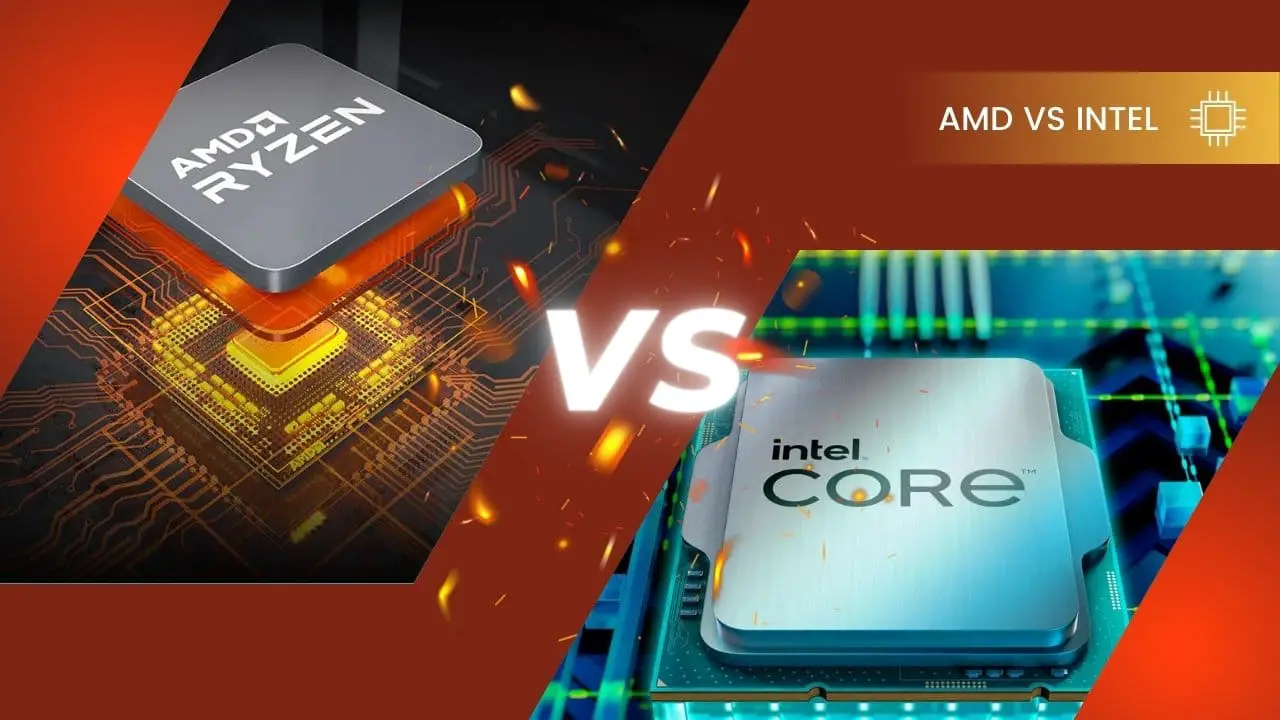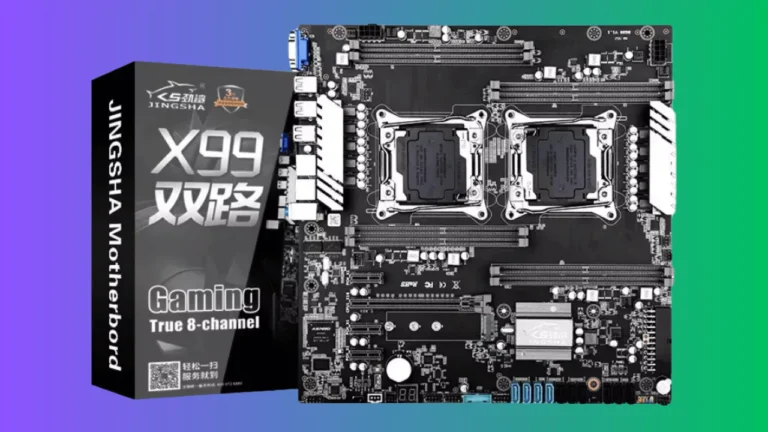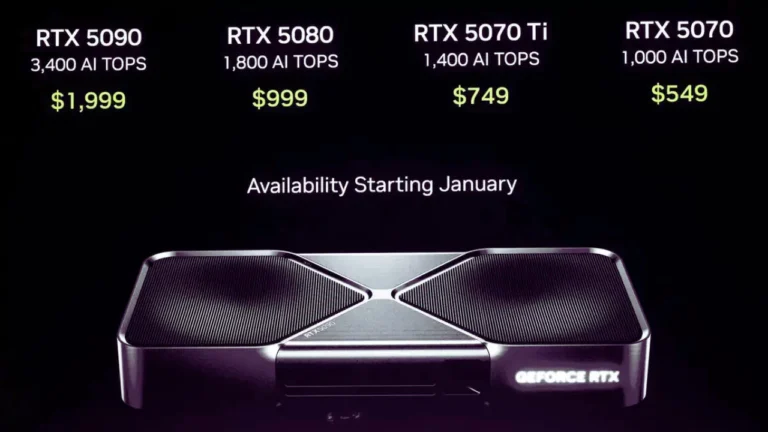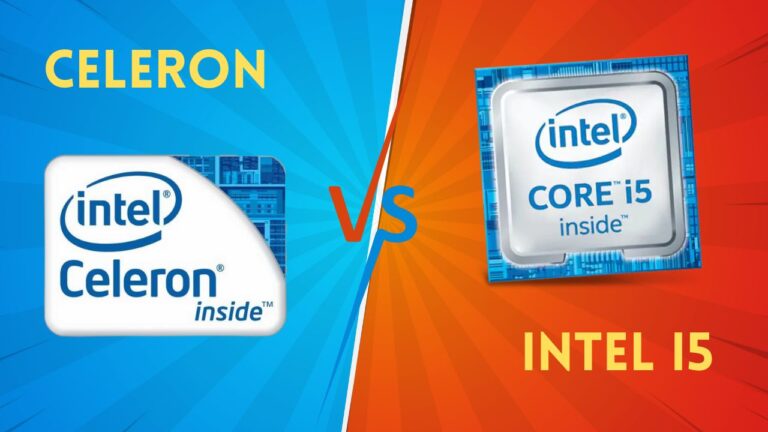Nowadays, gamers are spoiled. With the rise of powerful graphics cards, and the ability to play games at high resolutions, we can enjoy a level of graphical detail never before seen. While the benefits of these advances are undeniable, they do come at a cost.
The graphics cards are quite powerful, and while they certainly offer improved performance, they are also much more expensive than previous generations. That’s why so many people have turned to CPUs that are optimized for gaming.
These days, there are many options, but which should you choose? Choosing a processor brand for your computer can be incredibly difficult for your CPU. Both AMD Ryzen and Intel CPUs have their pros and cons, so it can be difficult to decide which one is right for you.
We’ve created this guide to help you make the best decision for your needs. In it, we’ll compare and contrast the two brands, as well as give you our recommendation on which one to choose.
AMD Ryzen vs Intel – Comparison
When it comes to choosing a CPU for gaming, there are two main brands that come to mind:
- AMD Ryzen
- Intel Core
Both brands offer a variety of processors with different specs and features, so it can be tough to decide which one is right for you.
If you’re looking for the best possible gaming performance, then you’ll want to choose a processor with a higher clock speed and more cores. However, these CPUs can be quite expensive. If you’re on a budget, then you’ll want to choose a CPU with lower specs but still offers good gaming performance.
Here’s a comparison of AMD Ryzen and Intel Core processors to help you decide which one is right for you:
| Features | AMD Ryzen | Intel |
|---|---|---|
| Processing power | Faster single-core performance | Better multi-core performance |
| Overclocking potential | Good potential | Excellent potential |
| Compatibility Motherboards | Some compatible motherboards | Compatible with most motherboards |
| Price | More affordable | Higher price point |
| Clock speed | High clock speed and average boost clock speed | Average clock speed and High boost clock speed |
| Cores and threads | Depending on the model of the AMD Ryzen most models have a higher number of threads | Likewise, most models of Intel Core tend to have a lower number of threads |
| Raw processing power Memory | Better Better Memory | Good Average Memory |
| Power consumption | Better power consumption | Not so good in power consumption |
| Graphics | Excellent built-in graphics | Better built-in graphics |
Intel and AMD Gaming CPU Benchmarks Hierarchy
| 1080p Gaming Score | 1440p Gaming Score | CPU | Cores/Threads | Base/Boost GHz | TDP | |
|---|---|---|---|---|---|---|
| Intel Core i9-12900K DDR4 / DDR5 | 100% / 93.51% | 100% / 95.86% | Alder Lake | 16 / 24 (8P+8E) | 3.2 / 5.2 | 125 / 241W |
| Intel Core i9-11900K | 92.48% | 97.26% | Rocket Lake | 8 / 16 | 3.5 / 5.3 | 125W |
| Intel Core i7-12700K DDR4 / DDR5 | 97.71% / 91.23% | 99.8% / 97.30% | Alder Lake | 12 / 20 (8P+4E) | 3.6 / 4.9 | 125 / 190W |
| AMD Ryzen 9 5900X | 90.98% | 93.18% | Zen 3 | 12 / 24 | 3.7 / 4.8 | 105W |
| Intel Core i5-12600K DDR4 / DDR5 | 90.89% / 84.32% | 96.94% / 92.33% | Alder Lake | 10 / 16 (6P+4E) | 3.7 / 4.9 | 125 / 150W |
| AMD Ryzen 9 5950X | 90.22% | 95.32% | Zen 3 | 16 / 32 | 3.4 / 4.9 | 105W |
| AMD Ryzen 5 5600X | 88.51% | 91.79% | Zen 3 | 6 / 12 | 3.7 / 4.6 | 65W |
| AMD Ryzen 7 5800X | 86.85% | 91.72% | Zen 3 | 8 / 16 | 3.8 / 4.7 | 105W |
| Intel Core i7-11700K | 86.30% | 92.00% | Rocket Lake | 8 / 16 | 3.6 / 5.0 | 125W |
| Intel Core i9-10900K | 85.01% | 91.50% | Comet Lake | 10 / 20 | 3.7 / 5.3 | 125W |
| Intel Core i9-10850K | 84.60% | 91.07% | Comet Lake | 10 / 20 | 3.6 / 5.2 | 95W |
| Intel Core i5-11600K | 84.06% | 90.43% | Rocket Lake | 6 / 12 | 3.9 / 4.9 | 125W |
| Intel Core i5-11400 | 80.98% | 87.77% | Rocket Lake | 6 / 12 | 2.6 / 4.4 | 65W |
| Intel Core i7-10700K | 80.66% | 87.88% | Comet Lake | 8 / 16 | 3.8 / 5.1 | 125W |
| Intel Core i9-10980XE | 78.04% | 84.04% | Cascade Lake-X | 18 / 36 | 3.0 / 4.8 | 165W |
| Intel W-3175X | 76.93% | 82.58% | Skylake | 28 / 56 | 3.1 / 4.3 | 225W |
| Ryzen 7 5700G* | 76.61% | 83.10% | Zen 3 | 8 / 16 | 3.8 / 4.6 | 65W |
| Intel Core i9-9900KS | 76.12% | 84.85% | Coffee Lake-R | 8 / 16 | 4.0 / 5.0 | 127W |
| Intel Core i7-10700/F | ~ | ~ | Comet Lake | 8 / 16 | 2.9 / 4.8 | 65W |
| Intel Core i5-10600K | 75.42% | 82.57% | Comet Lake | 6 / 12 | 4.1 / 4.8 | 125W |
| Intel Core i7-9700K | 73.62% | 81.12% | Coffee Lake-R | 8 / 8 | 3.6 / 4.9 | 95W |
| Intel Core i9-9900K / F | 73.41% | 84.85% | Coffee Lake-R | 8 / 16 | 3.6 / 5.0 | 95W |
| AMD Ryzen 9 3950X | 72.63% | 78.58% | Zen 2 | 16 / 32 | 3.5 / 4.7 | 105W |
| AMD Threadripper 3970X | 72.44% | 77.99% | Zen 2 | 32 / 64 | 3.7 / 4.5 | 280W |
| AMD Threadripper 3960X | 72.07% | 77.12% | Zen 2 | 24 / 48 | 3.8 / 4.5 | 280W |
| AMD Ryzen 5 5600G | 71.99% | 76.76% | Zen 3 | 6 / 12 | 3.9 / 4.4 | 65W |
| AMD Ryzen 7 3800XT | 71.78% | 79.28% | Zen 2 | 8 / 16 | 3.9 / 4.7 | 105W |
| AMD Threadripper 3990X | 71.68% | 77.94% | Zen 2 | 64 / 128 | 2.9 / 4.3 | 280W |
| AMD Ryzen 9 3900XT | 71.67% | 78.55% | Zen 2 | 12 / 24 | 3.8 / 4.7 | 105W |
| AMD Ryzen 9 3900X | ~ | ~ | Zen 2 | 12 / 24 | 3.8 / 4.6 | 105W |
| Intel Core i9-9980XE | ~ | ~ | Skylake | 18 / 36 | 4.4 / 4.5 | 165W |
| AMD Ryzen 9 3900 | ~ | ~ | Zen 2 | 12 / 24 | 3.1 / 4.3 | 105W |
| AMD Ryzen 7 3700X | 71.43% | 79.08% | Zen 2 | 8 / 16 | 3.6 / 4.4 | 65W |
| AMD Ryzen 7 3800X | 71.30% | 78.67% | Zen 2 | 8 / 16 | 3.9 / 4.5 | 105W |
| AMD Ryzen 5 3600XT | 70.62% | 77.75% | Zen 2 | 6 / 12 | 3.8 / 4.5 | 95W |
| AMD Ryzen 5 3600 | 68.63% | 75.59% | Zen 2 | 6 / 12 | 3.6 / 4.2 | 65W |
| Intel Core i9-7960X | ~ | ~ | Skylake | 16 / 32 | 2.8 / 4.2 | 165W |
| Intel Core i7-8700K | 68.47% | 76.41% | Coffee Lake | 6 / 12 | 3.7 / 4.7 | 95W |
| AMD Ryzen 5 3600X | 68.41% | 75.60% | Zen 2 | 6 / 12 | 3.8 / 4.4 | 95W |
| AMD Ryzen 3 3300X | 67.49% | 74.60% | Zen 2 | 4 / 8 | 3.8 / 4.3 | 65W |
| Intel Core i5-9600K | 67.06% | 75.11% | Coffee Lake-R | 6 / 6 | 3.7 / 4.6 | 95W |
| AMD Threadripper Pro 3995WX | 66.18% | 69.28% | Zen 2 | 64 / 128 | 2.7 / 4.2 | 280W |
| Intel Core i5-8600K | 65.84% | 73.40% | Coffee Lake | 6 / 6 | 3.6 / 4.3 | 95W |
| Intel Core i7-8700 | 65.57% | 73.66% | Coffee Lake | 6 / 12 | 3.2 / 4.6 | 65W |
| Intel Core i7-8086K | 65.05% | 73.50% | Coffee Lake | 6 / 12 | 4.0 / 5.0 | 95W |
| Intel Core i5-9400 / i5-9400F | 64.85% | 72.08% | Coffee Lake | 6 / 6 | 2.9 / 4.1 | 65W |
| Intel Core i5-8400 | 63.96% | 71.20% | Coffee Lake | 6 / 6 | 2.8 / 4.0 | 65W |
| AMD Ryzen 5 3500X | ~ | ~ | Zen 2 | 6 / 6 | 3.6 / 4.1 | 65W |
| Core i3-10100 | 61.88% | 69.08% | Comet Lake | 4 / 8 | 3.6 / 4.3 | 65W |
| AMD Ryzen 7 2700X | 59.19% | 66.55% | Zen+ | 8 / 16 | 3.7 / 4.3 | 105W |
| Ryzen 7 4750G* | 58.43% | 66.46% | Zen 2 | 8 / 16 | 3.8 / 4.6 | 65W |
| AMD Ryzen 3 3100 | 57.75% | 64.21% | Zen 2 | 4 / 8 | 3.8 / 3.9 | 65W |
| Intel Core i9-7980XE | ~ | ~ | Skylake | 18 / 36 | 2.6 / 4.2 | 165W |
| Intel Core i9-7900X | ~ | ~ | Skylake | 10 / 20 | 3.3 / 4.3 | 140W |
| AMD Ryzen 5 2600X | 57.55% | 65.33% | Zen+ | 6 / 12 | 3.6 / 4.2 | 95W |
| Intel Core i7-7700K | ~ | ~ | Kaby Lake | 4 / 8 | 4.2 / 4.5 | 91W |
| AMD Threadripper 2990WX (GM) | ~ | ~ | Zen+ | 32 / 64 | 3.0 / 4.2 | 250W |
| Intel Core i7-7820X | ~ | ~ | Skylake | 8 / 16 | 3.6 / 4.3 | 140W |
| AMD Threadripper 2950X (GM) | ~ | ~ | Zen + | 16 / 32 | 3.5 / 4.4 | 180W |
| AMD Threadripper 2970WX | ~ | ~ | Zen + | 24 / 48 | 3.0 / 4.2 | 250W |
| AMD Ryzen 7 2700 | ~ | ~ | Zen+ | 8 / 16 | 3.2 / 4.1 | 65W |
| AMD Threadripper 1900X (GM) | ~ | ~ | Zen | 8 / 16 | 3.8 / 4.0 | 180W |
| Intel Core i7-7700 | ~ | ~ | Kaby Lake | 4 / 8 | 3.6 / 4.2 | 65W |
| AMD Ryzen 5 2600 | ~ | ~ | Zen+ | 6 / 12 | 3.4 / 3.9 | 65W |
| Intel Core i7-7800X | ~ | ~ | Skylake | 6 / 12 | 3.5 / 4.0 | 140W |
| Intel Core i5-7600K | ~ | ~ | Kaby Lake | 4 / 4 | 3.8 / 4.2 | 91W |
| AMD Threadripper 1950X (GM) | ~ | ~ | Zen | 16 / 32 | 3.4 / 4.0 | 180W |
| AMD Threadripper 1920X (GM) | ~ | ~ | Zen | 12 / 24 | 3.5 / 4.0 | 180W |
| Intel Core i3-9350KF | 56.42% | 65.19% | Coffee Lake | 4 / 4 | 4.0 / 4.6 | 91W |
| AMD Ryzen 3 5300G | 55.54% | 62.68% | Zen 3 | 4 / 8 | 4.0 / 4.2 | 65W |
| AMD Ryzen 7 1800X | 53.86% | 60.83% | Zen | 8 / 16 | 3.6 / 4.0 | 95W |
| Intel Core i5-7600 | ~ | ~ | Kaby Lake | 4 / 4 | 3.5 / 4.1 | 65W |
| Intel Core i3-8100 | ~ | ~ | Coffee Lake | 4 / 4 | 3.6 / – | 65W |
| Intel Core i5-7500 | ~ | ~ | Kaby Lake | 4 / 4 | 3.4 / 3.8 | 65W |
| Intel Core i5-7400 | ~ | ~ | Kaby Lake | 4 / 4 | 3.0 / 3.5 | 65W |
| AMD Ryzen 7 1700X | ~ | ~ | Zen | 8 / 16 | 3.8 / 3.9 | 95W |
| AMD Ryzen 5 1600AF | ~ | ~ | Zen + | 6 / 12 | 3.2 / 3.6 | 65W |
| AMD Ryzen 7 1700 | ~ | ~ | Zen | 8 / 16 | 3.0 / 3.8 | 65W |
| Intel Core i3-8350K | 53.84% | 61.82% | Coffee Lake | 4 / 4 | 4.0 / – | 91W |
| Intel Core i3-9100 | 51.96% | 60.10% | Coffee Lake-R | 4 / 4 | 3.6 / 4.2 | 65W |
| AMD Ryzen 5 1600X | 49.99% | 57.28% | Zen | 6 / 12 | 3.6 / 4.0 | 95W |
| AMD Ryzen 5 1600 | ~ | ~ | Zen | 6 / 12 | 3.2 / 3.6 | 65W |
| AMD Ryzen 5 3400G | 48.81% | 55.73% | Zen + | 4 / 8 | 3.7 / 4.2 | 65W |
| Intel Core i5-7400 | ~ | ~ | Kaby Lake | 4 / 4 | 3.0 / 3.5 | 65W |
| Intel Core i3-8100 | 48.43% | 59.70% | Coffee Lake | 4 / 4 | 3.6 / – | 65W |
| AMD Ryzen 3 3200G | 45.96% | 52.98% | Zen + | 4 / 4 | 3.6 / 4.0 | 65W |
| AMD Ryzen 5 2400G | 44.84% | 50.67% | Zen+ | 4 / 8 | 3.6 / 3.9 | 65W |
| AMD Ryzen 5 1500X | ~ | ~ | Zen | 4 / 8 | 3.5 / 3.7 | 65W |
| Intel Core i3-7350K | ~ | ~ | Kaby Lake | 2 / 4 | 4.2 / – | 60W |
| Intel Pentium G5600 | ~ | ~ | Coffee Lake | 2 / 4 | 3.9 / – | 54W |
| AMD Ryzen 3 2200G | 42.16% | 48.56% | Zen+ | 4 / 4 | 3.5 / 3.7 | 65W |
| AMD Ryzen 3 1300X | ~ | ~ | Zen | 4 / 4 | 3.5 / 3.7 | 65W |
| Intel Core i3-7300 | ~ | ~ | Kaby Lake | 2 / 4 | 4.0 / – | 51W |
| Intel Pentium G5600 | 37.52% | 44.70% | Coffee Lake | 2 / 4 | 3.9 / – | 54W |
| Intel Pentium G5400 | 36.57% | 43.31% | Coffee Lake | 2 / 4 | 3.7 / – | 54W |
| Intel Core i3-7100 | ~ | ~ | Kaby Lake | 2 / 4 | 3.9 / – | 51W |
| AMD Ryzen 5 1400 | ~ | ~ | Zen | 4 / 8 | 3.2 / 3.4 | 65W |
| Intel Pentium G4620 | ~ | ~ | Kaby Lake | 2 / 4 | 3.7 / – | 54W |
| Intel Pentium G4560 | ~ | ~ | Kaby Lake | 2 / 4 | 3.5 / – | 54W |
| AMD Athlon 3000G | ~ | ~ | Zen+ | 2 / 4 | 3.5 / – | 35W |
| AMD Athlon 240GE | ~ | ~ | Zen | 2 / 4 | 3.5 / – | 35W |
| AMD Athlon 220GE | ~ | ~ | Zen | 2 / 4 | 3.4 / – | 35W |
| AMD Athlon 200GE | ~ | ~ | Zen | 2 / 4 | 3.2 / – | 35W |
| AMD Ryzen 3 1200 | ~ | ~ | Zen | 4 / 4 | 3.1 / 3.2 | 65W |
| Zhaoxin KaiXian KX-U6780A | ~ | ~ | LuJiaZui | 8 / 8 | 2.7 / – | 70W |
| AMD A10-9700 | ~ | ~ | Bristol Ridge | 4 / 4 | 3.5 / 3.8 | 65W |
Explanation of Main Differences Between Ryzen and Intel Processors
AMD Ryzen vs Intel Core – Processing power
As we all know, processing power is one of the most important aspects of a computer. It determines how fast a computer can perform certain tasks. In general, AMD Ryzen processors offer more processing power than Intel Core processors. However, there are some specific tasks that Intel Core processors can perform better than AMD Ryzen processors.
One thing to keep in mind is that processing power is not the only thing that determines a computer’s performance. There are other factors such as memory, storage, and graphics processing that also play a role.
AMD Ryzen vs Intel Core – Overclocking potential
Overclocking is the process of pushing a computer’s components beyond the limits set by the manufacturer in order to extract more performance. It’s usually done by experienced enthusiasts and gamers who know how to get the most out of their hardware.
Both AMD and Intel CPUs can be overclocked, but it’s worth noting that Intel’s chips are typically more difficult to overclock than AMDs. That said, AMD’s CPUs tend to offer more overclocking potential overall. For example, Intel’s current top-of-the-line CPU is the Core i9-10900K. It has a base clock speed of 3.7GHz and can boost up to 5.3GHz. However, most reports indicate that it’s difficult to get this CPU past the 5GHz mark without running into stability issues.
On the other hand, AMD’s Ryzen 9 3950X is a 16-core/32-thread CPU with a base clock speed of 3.5GHz and a boost clock speed of 4.7GHz. However, this CPU is much easier to overclock and many users have been able to get it stable at speeds above 5GHz.
So, if you’re looking for the best overclocking potential, AMD’s Ryzen CPUs are the way to go. However, if you’re not interested in overclocking or you’re not sure how to do it, you can save yourself some money and get an Intel CPU instead.
AMD Ryzen vs Intel Core – Price, specs, and performance
The debate over which is better, AMD Ryzen or Intel Core, is one that has been going on for years. It’s a tough decision, as both processors offer great features and performance. However, there are some key differences that you should consider before making your decision.
AMD Ryzen vs Intel Core – Price
AMD Ryzen processors are generally more affordable than Intel Core processors. This is especially true when you compare the top-of-the-line models from each company.
However, it’s important to remember that price isn’t everything. In many cases, you’ll get more bang for your buck with an AMD Ryzen processor than an Intel Core processor.
AMD Ryzen vs Intel Core – Specs
When it comes to specs, AMD Ryzen processors have the advantage. They offer more cores and threads than Intel Core processors, meaning they can handle more tasks at once.
They also have higher clock speeds, which means they can process information faster. However, Intel Core processors have better energy efficiency, meaning they’ll use less power and generate less heat.
AMD Ryzen vs Intel Core – Performance
Both AMD Ryzen and Intel Core processors offer great performance. However, the extra cores and threads of the AMD Ryzen processors give them an edge when it comes to multitasking and demanding tasks.
The higher clock speeds of the Intel Core processors give them an advantage when it comes to single-threaded tasks.
AMD Ryzen vs Intel Core – Memory Support Comparison
Both AMD Ryzen and Intel Core processors offer support for DDR4 memory, but there are some key differences to be aware of. For one, Ryzen CPUs support faster memory speeds out of the box, while Intel CPUs require an expensive Z270 motherboard to reach those same speeds. Additionally, Ryzen CPUs offer more PCIe lanes for expansion cards and storage devices, while Intel CPUs offer more USB ports.
When it comes to memory support, there are some clear advantages to AMD Ryzen over Intel Core processors. If you’re looking for the fastest possible memory speeds or the most PCIe lanes for expansion cards, then Ryzen is the better option. However, if you need more USB ports or plan on using a lot of high-speed storage devices, then Intel Core may be the better choice.
AMD Ryzen vs Intel Core – Power consumption
In terms of power consumption, the AMD Ryzen is reported to use around 65 watts of power while the Intel Core i7-7700K uses 95 watts. This makes the AMD Ryzen more power-efficient than the Intel Core i7-7700K. When it comes to performance per watt, the AMD Ryzen consumes 0.65 watts while the Intel Core i7-7700K consumes 1.05 watts. This means that the AMD Ryzen is more efficient in terms of performance per watt.
So, if you are looking for a powerful and efficient processor, the AMD Ryzen is a great choice. If you are looking for a processor that is more affordable, the Intel Core i7-7700K is a good choice.
AMD Ryzen vs Intel Core – Graphics
The graphics performance of the AMD Ryzen and Intel Core processors is quite similar. Both offer excellent graphics performance, though the AMD Ryzen processor tends to be slightly better in this area. If you’re looking for a processor that offers great graphics performance, either of these options would be a good choice.
Which CPU Brand To Pick For Gaming?
As you can see from the table, AMD Ryzen CPUs offer better value for money than Intel Core CPUs when it comes to gaming. In fact, AMD Ryzen CPUs are often cheaper than Intel Core CPUs while offering similar or better performance.
If you’re looking to build a new gaming PC on a budget, then AMD Ryzen is the way to go. However, if you’re looking for the absolute best gaming performance, then you’ll want to choose an Intel Core CPU.
Reason does not buy an Intel Core CPU for gaming
Let’s start with the reasons not to buy an Intel Core CPU for gaming. There are several reasons why you might not want to choose an Intel Core CPU for your gaming PC.
1. More Expensive – AMD Ryzen CPUs are generally more affordable than Intel Core CPUs. If you’re on a budget, you might want to consider an AMD Ryzen CPU over an Intel Core CPU.
2. Worse Performance – In many cases, AMD Ryzen CPUs offer better performance than Intel Core CPUs. If you’re looking for the best gaming performance, you should choose an AMD Ryzen CPU.
Reason does not buy an AMD Ryzen CPU for gaming?
There are several reasons why you might not want to choose an AMD Ryzen CPU for your gaming PC.
1. Lower Quality – AMD Ryzen CPUs are generally lower quality than Intel Core CPUs. If you’re looking for the best quality, you should choose an Intel Core CPU.
2. Harder to Overclock – AMD Ryzen CPUs are generally harder to overclock than Intel Core CPUs. If you’re looking to get the most out of your CPU, you might want to consider an Intel Core CPU.
3. Worse Warranty – AMD Ryzen CPUs often come with shorter warranties than Intel Core CPUs. If you’re looking for a CPU with a longer warranty, you should choose an Intel Core CPU.
Why should you buy AMD Ryzen CPU for gaming?
AMD Ryzen CPUs offer a number of advantages for gamers, including more cores and threads than Intel CPUs, more memory bandwidth, and faster clock speeds. They also tend to be more affordable than Intel CPUs.
One of the biggest benefits of AMD Ryzen CPUs for gaming is that they offer more cores and threads than Intel CPUs. This means that they can handle more tasks simultaneously, which can be helpful for gamers who want to multitask or play demanding games.
Moreover, AMD Ryzen CPUs offer more memory bandwidth than Intel CPUs, meaning they can provide smoother gameplay and better frame rates. As we saw in the comparison table, AMD Ryzen CPUs tend to have faster clock speeds than Intel CPUs, meaning they can provide a faster and more responsive gaming experience.
Why should you buy an Intel Core CPU for gaming?
Well, there are several reasons. Firstly, Intel CPUs tend to offer better gaming performance than AMD CPUs. Then, Intel CPUs are typically more expensive than AMD CPUs. Also, Intel CPUs tend to be more reliable and have a longer lifespan than AMD CPUs.
So, if you’re looking for the best gaming CPU, then you should definitely consider an Intel Core CPU. However, if you’re on a budget, then an AMD CPU may be a better option.
Conclusion
Both AMD Ryzen and Intel Core processors have their own advantages and disadvantages. In the end, it really depends on your needs as a gamer when choosing which CPU brand to pick. If you’re looking for the best possible gaming performance, then you’ll want to choose a processor with a higher clock speed and more cores. However, these CPUs can be quite expensive. If you’re on a budget, then you’ll want to choose a CPU with lower specs but still offers good gaming performance.
AMD Ryzen processors are more affordable and offer good gaming performance, while Intel Core processors offer excellent gaming performance but are more expensive.
I hope this article has helped you decide whether to buy an AMD Ryzen CPU or an Intel Core CPU for gaming. If you have any questions about the two CPUs, feel free to leave them in the comments section below!
Thanks for reading.







